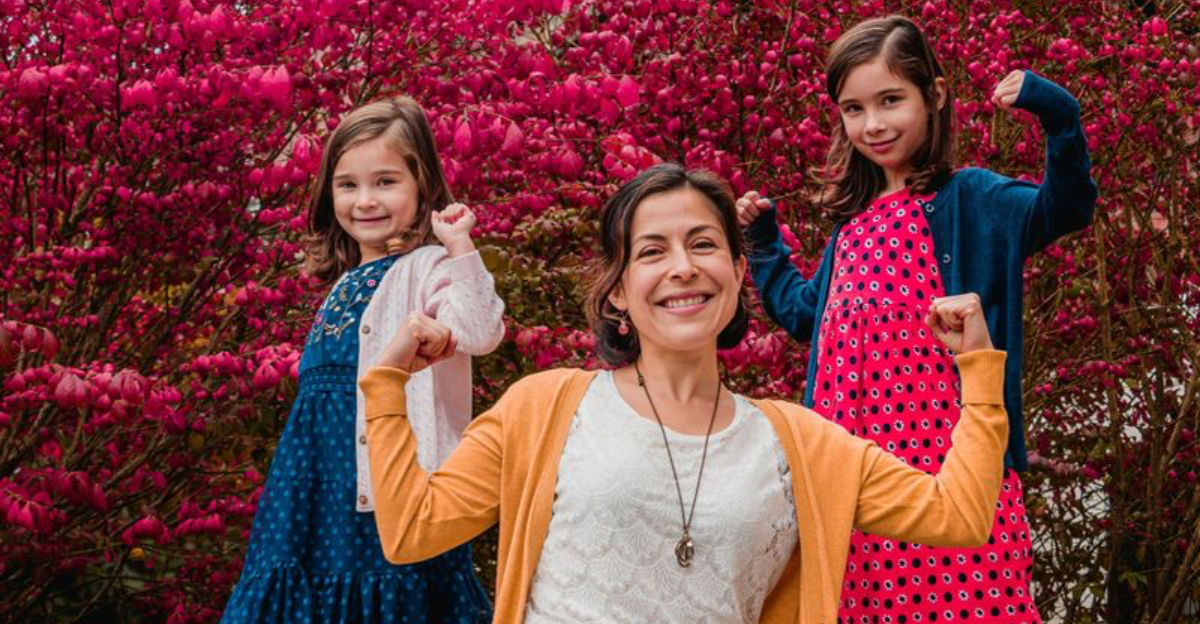Beyond Parenthood: 15 Meaningful Ways You and Your Child Can Grow Together at Every Stage
Parenthood isn’t just about shaping our kids—it’s also about letting them shape us. While we teach them how to tie their shoes, navigate friendships, and become kind humans, they’re teaching us patience, presence, and how to love bigger than we ever thought possible.
The wildest part? You don’t need to have it all together (spoiler: none of us do) to make magic happen. What matters is that you’re in it—messy kitchen, mismatched socks, and all.
Some days you’ll feel like Mary Poppins, others like you’re barely holding on with a lukewarm coffee, but every day you’re growing together in the most surprising, beautiful ways. There are so many ways to connect, laugh, and learn as a team, no matter how old your kid is.
Ecco 15 deeply meaningful ways to grow together with your child, from their first steps to the day they take their own:
1. Be Curious Together

Ever tried to explain why the sky is blue and ended up more confused than your kid? That’s the magic of being curious together. It’s not about having answers; it’s about showing your child that questions are worth asking.
When you both wonder out loud, you’re teaching them it’s okay not to know everything. You’re also showing them how to look for clues and think things through—a skill most adults could use a refresher on. The best part? Curiosity doesn’t care if you’re six or sixty.
Some of our most memorable moments have started with, “What if…” or “How come…” and ended with us giggling over Google searches or wild guesses. Curiosity in a family is contagious, and the questions never run out.
2. Celebrate Effort Over Outcome

Let’s be honest—sometimes it’s easier to cheer for the win than the wobble. But the real growth happens when you toss the scoreboard and focus on the trying. Your kid needs to know it’s totally cool to finish last or color outside the lines.
We’ve spent afternoons clapping for the ugliest cookies and cheering for missed soccer goals. Praising the effort (not just the trophy) helps your child see that mistakes are just pit stops, not dead ends.
Celebrate the hustle, the mess-ups, and all the times they kept going. When you do, you’re raising someone who believes their best matters more than being the best. That lesson sticks around long after the awards end.
3. Model Emotional Honesty
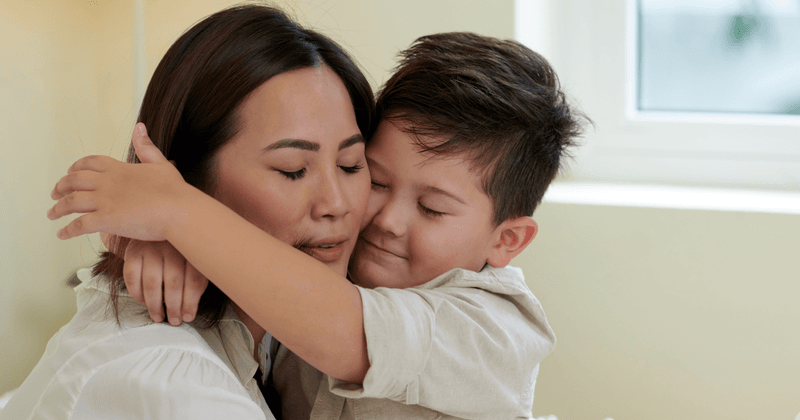
Ever tried to hold back tears in front of your kid? Spoiler alert: they notice. I’ve learned that letting them see you sad or anxious gives them permission to feel those things, too, without shame.
Naming your feelings out loud—”I’m frustrated right now,” or “Today was hard for me”—takes the scary out of big emotions. Your honesty becomes their blueprint for handling their own stormy days.
There’s something deeply bonding about wiping away tears together, or laughing at something ridiculous after a tough moment. That’s real life, and it’s where trust grows strongest. Emotional honesty isn’t weakness; it’s the secret ingredient for real connection.
4. Embrace Play, Even When It’s Messy
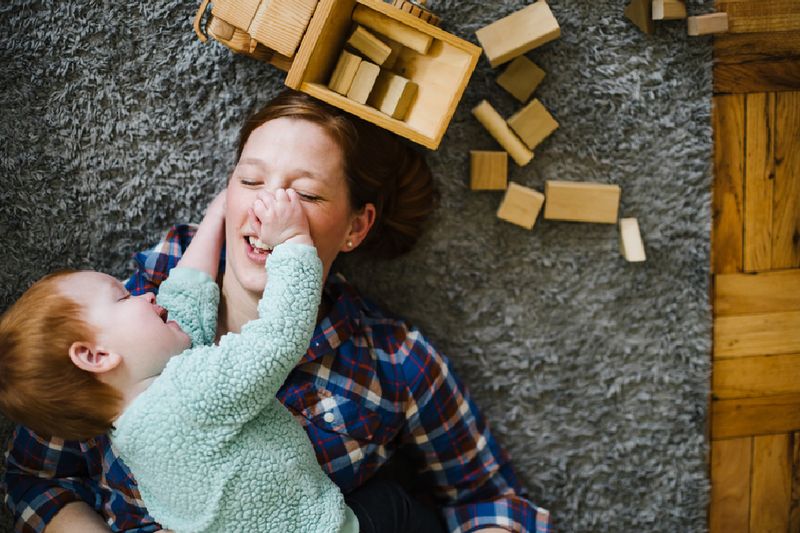
The floors are a disaster, there’s glitter in your coffee, and you can’t remember the last time your living room looked like a living room. But oh, the joy! Getting down on the floor with your child and letting loose—there’s nothing quite like it.
It’s not about Pinterest perfection, it’s about belly laughs and spontaneous dance parties. Play is where your kid sees you as a partner, not just the “no” police.
Those five wild, silly, slightly chaotic minutes are worth every dust bunny. Years from now, you won’t remember the mess—you’ll remember the laughter. And so will they.
5. Apologize When You Mess Up

Nobody gets it right every time—not even moms. Saying sorry to your child after you’ve snapped or made a mistake is surprisingly powerful. It shows them that grown-ups are still learning, too.
I’ve had moments where my apology caught my daughter off guard—like, wait, parents can admit they’re wrong? Turns out, it takes guts to own up, but it makes your relationship stronger.
A good “I’m sorry” can fix more than you think. It models accountability, opens the door for honest conversations, and reminds your child that love isn’t canceled by a bad day.
6. Read Together, Even as They Get Older

Storytime doesn’t have an expiration date, even when feet get too big for your lap. Reading together—whether it’s Harry Potter, graphic novels, or the news—creates a world you both can step into, side by side.
As your child grows, the stories change, but the connection stays. I love our late-night book debates or those “You have to read this!” moments that spark new conversations.
Books are more than escape—they’re invitations to talk about big ideas, feelings, and dreams. Keep reading together, even when school says they’re “too old.” The chapters you share now are building their inner library forever.
7. Let Them Teach You Something

Okay, real talk—kids are basically tiny, energetic professors. They know all the TikTok trends, Pokémon pronunciations, and whatever the latest must-have snack is. Letting them teach you something flips the script in the best way.
Whether you’re learning a dance or figuring out a video game together, it’s about stepping into their world and letting them lead. The laughter and (let’s be honest) your “epic fails” are half the fun.
The coolest part? You’re showing them that you value what they care about. That makes them feel seen—and it gives you a free pass to embarrass yourself, which builds connection faster than anything else.
8. Say Yes to Their Ideas Sometimes
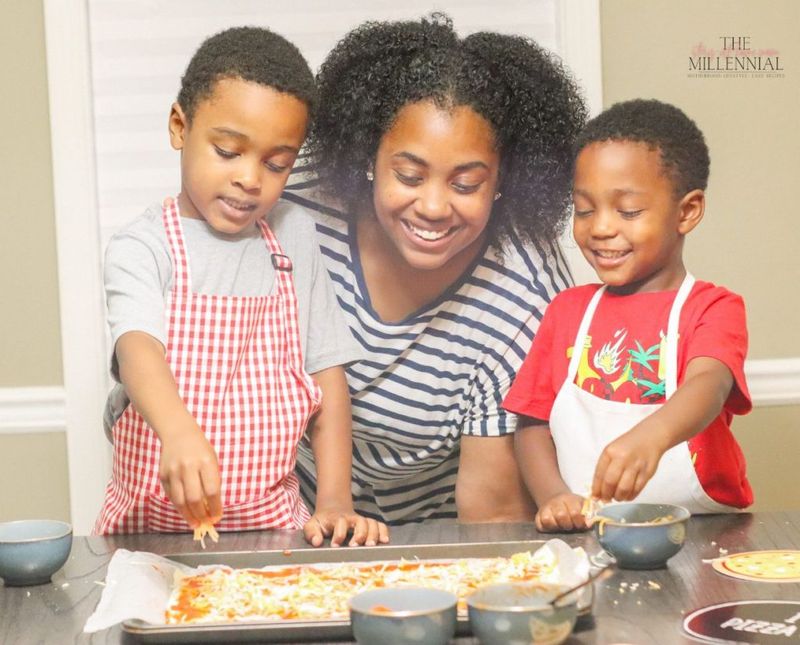
I’ll admit it—sometimes my kid’s ideas make me nervous. (Spaghetti tacos? Really?) But saying yes to their creative plans every now and then does wonders for their confidence and our connection.
Whether it’s letting them plan dinner, choose the family movie, or pick the weekend adventure, it sends a clear message: your voice matters here. The best memories come from the wildest ideas.
Sure, you might end up with glitter in your hair or pineapple on your pizza, but the pride in their eyes? Totally worth it. Sometimes, “why not?” is the best kind of genitorialità magic.
9. Laugh Together—A Lot
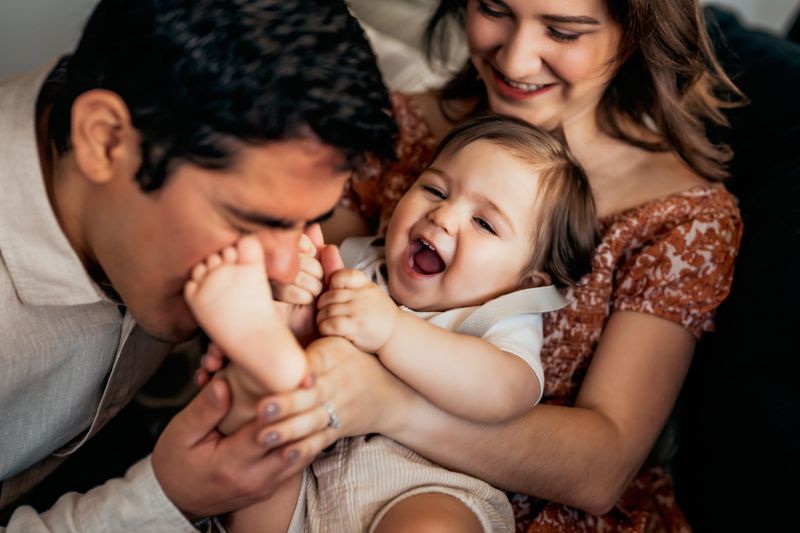
Growing together isn’t all life lessons and deep talks. Sometimes, it’s about laughing so hard your stomach hurts and you snort—loudly. Laughter is the glue that keeps families close, especially when life gets complicated.
Inside jokes, silly voices, or spontaneous dance parties in the kitchen are the stuff memories are made of. It’s amazing how a shared giggle can turn a rough day around for everyone.
Let loose, crack up, and remember: humor is a survival tool, not just a bonus. The more you laugh together, the easier it is to handle whatever comes next.
10. Create Traditions That Stick
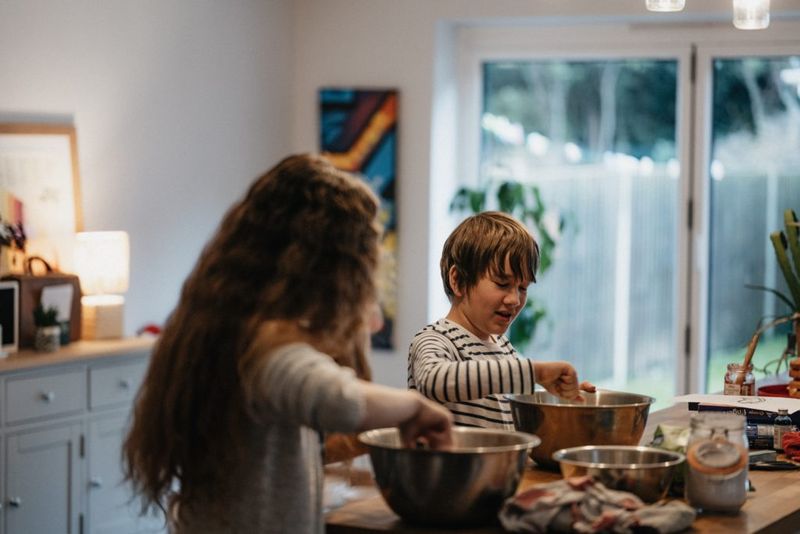
Traditions don’t have to be fancy, just consistent. Maybe it’s Taco Tuesday, annual pillow forts, or goofy family selfies every birthday. Rituals give families a heartbeat—something special to come back to, no matter where life goes.
Our traditions are often built from the simplest things, like bedtime high-fives or Sunday pancakes. They’re the bookmarks in our family’s story, giving us something to look forward to.
What matters isn’t perfection—it’s the togetherness. Over time, these small rituals become the stories your kids tell their friends and, one day, their own children. That’s true legacy.
11. Encourage Questions, Even the Awkward Ones
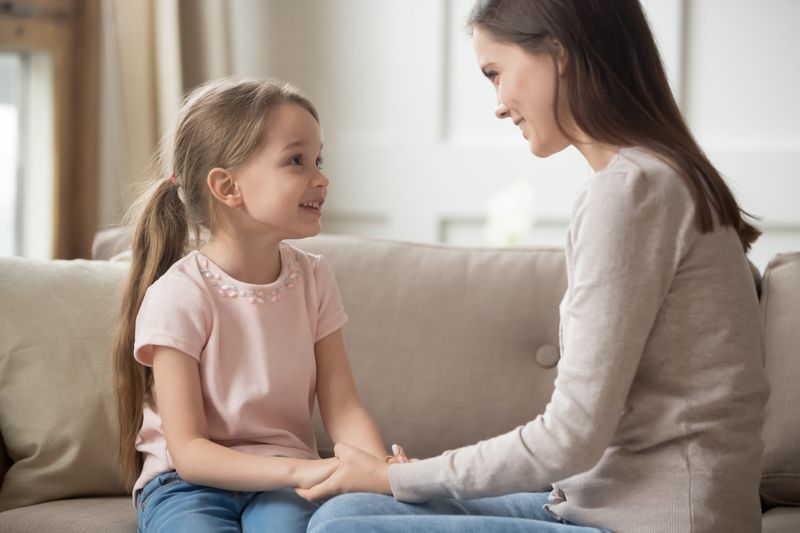
Remember the first time your kid asked you something that made you want to crawl under the table? Yeah, me too. But if they’re brave enough to ask, I want to be brave enough to answer (or at least try).
If you’re their go-to for the weird and awkward questions, you’re building trust that lasts. It’s not about always having the right words—it’s about listening, staying calm, and not running for the hills.
Every uncomfortable chat is a bridge, not a wall. They’ll remember you kept the door open, even when it made you blush. That’s the kind of parent-child bond that survives anything.
12. Respect Their Changing Identity

Kids don’t come with a pause button—they change daily. One minute, they’re obsessed with dinosaurs; next, they’re all about vintage band tees. The trick is learning to cheer for whoever they’re becoming, not just who they were.
Letting your child grow into new interests or styles—even when you don’t get it—shows them you’re rooting for their real self. It’s not always easy. Sometimes, you’ll miss the kid who loved bedtime stories or tutus.
But watching them lean into their next chapter while knowing you’re still on their team? That’s the real milestone. Celebrate every version of them—you might be surprised how much you grow, too.
13. Take Care of Yourself Without Guilt

Repeat after me: self-care is not selfish. I used to think taking time for myself meant taking something away from my family. Turns out, the opposite is true.
When your kid sees you rest, recharge, or chase your own passions, you’re giving them permission to do the same. You’re teaching balance—something they’ll need long after you’re the boss of their bedtime.
Whether it’s a solo walk, a bubble bath, or getting lost in a good book, taking care of you is part of taking care of them. It’s how you show up with a full cup, ready to pour back into your family.
14. Be Present, Not Perfect

Perfection is overrated, and honestly, exhausting. If your kid wanted a flawless mom, they’d have picked a robot. What they really need is you—right here, right now, messy hair and all.
When you put down your phone, make eye contact, and listen (really listen), you’re giving your child the gift of presence. That’s the stuff they’ll remember, not whether your house looked like a magazine.
Your love doesn’t have to be Instagram-worthy. It just has to be real. Show up, even when you feel like you’re winging it. That’s where the magic happens.
15. Say “I Love You” In All the Ways

There are days when words come easy—and days when they don’t. I’ve learned you can say “I love you” a million ways: with hugs, with notes in lunchboxes, with late-night talks, or by just showing up on the bleachers.
Love is in the details—the way you remember their favorite snack or send a silly meme just because. Those little gestures add up, creating a soundtrack of care that plays through every stage.
Even on the hard days, let love be loud and obvious. If your child knows they’re loved, they can handle almost anything. That’s the foundation they’ll stand on, long after they’ve outgrown your lap.

